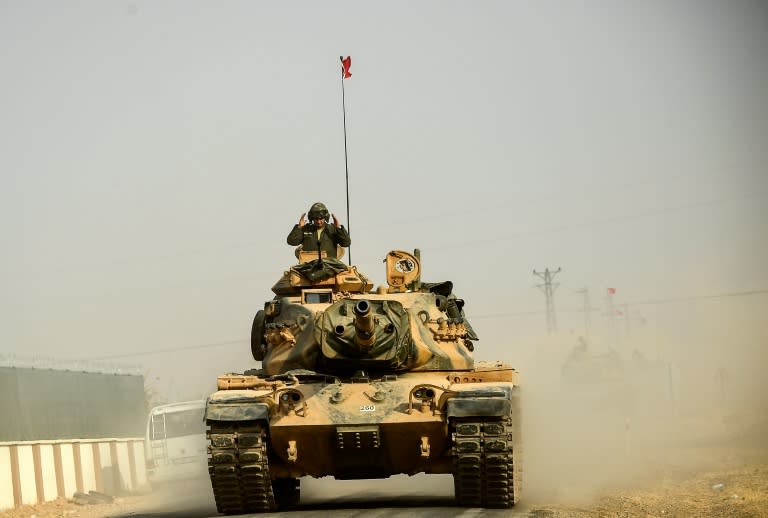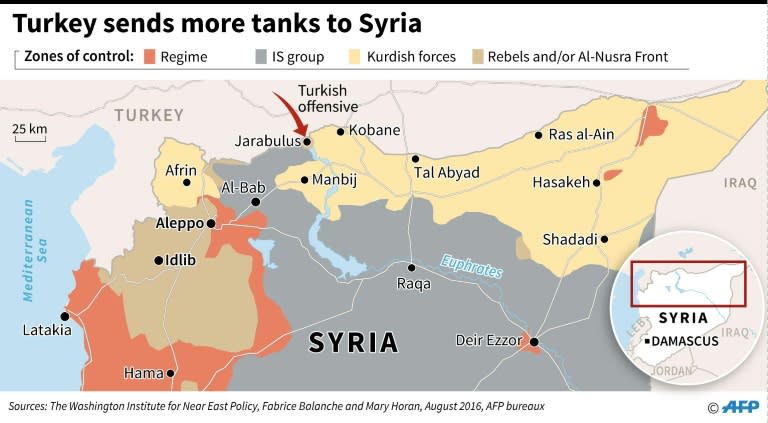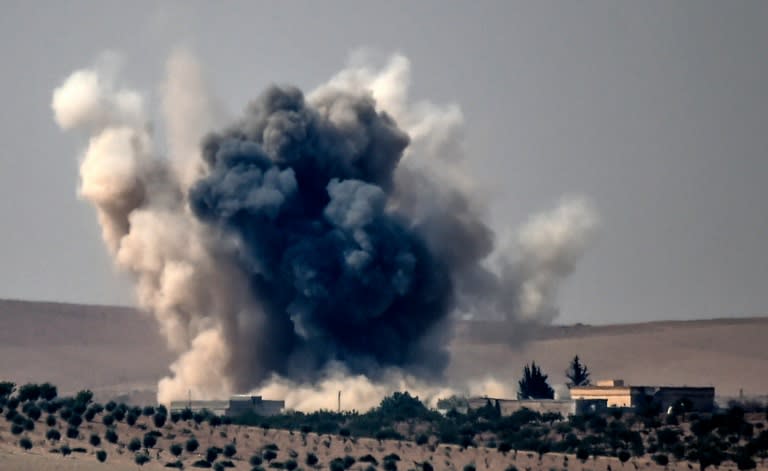Turkey and the Syria conflict: key developments
Here are key developments in Turkey's involvement in the Syria conflict, after Ankara launched a major offensive aimed both at jihadists and Syrian Kurdish forces. - Ankara drops Assad - In September 2011 Turkish Prime Minister Recep Tayyip Erdogan, who had previously described Syrian President Bashar al-Assad as a friend, says: "The Syrian people do not believe Assad, and I do not either." Siding with the West six months after peaceful protests against Assad were brutally put down, Ankara joins mounting diplomatic pressure on its neighbour, before imposing sanctions on Damascus in November 2011. - Hosts Syrian opposition - In July 2011 defected Syrian army colonel Riyadh al-Assad sets up a Free Syrian Army operating out of Turkey to fight the Assad regime. In October, after several meetings on Turkish soil, Syrian opposition leaders meeting in Istanbul announce the creation of a broad-based Syrian National Council. In November 2012 Turkey recognises the Council as "the legitimate representative of the Syrian people". - Accused of complacency - In September 2014 Islamic State jihadists attack the Syrian border town of Kobane, entering the town which becomes the scene of urban guerrilla fighting. Ankara, accused of letting IS fighters reach Syria via Turkish territory, rebuffs pressure by western allies to intervene militarily and help Kurdish forces against the jihadists. Turkey has regularly voiced concern over the possibility of an autonomous Kurdish region in Syria led by militias it considers close to the Kurdistan Workers' Party (PKK). In late January, Syrian Kurds backed by international air strikes retake Kobane. - Joins anti-jihadist coalition - On July 20, 2015 the Syrian conflict spills into Turkey with an attack blamed on IS fighters in the border town of Suruc that kills 34 people. Erdogan launches a "war against terrorism" aimed at both the PKK and the IS. In August, Ankara joins the US-led coalition and tightens airport and border checks. Jihadist cells are dismantled after several attacks blamed on the IS, including one which kills 103 people at Ankara's central railway station in October. - Makes up with Moscow - On August 9, 2016 Erdogan meets Russian President Vladimir Putin in St Petersburg to seal a reconciliation with Moscow, which has backed Assad. Ties had deteriorated after a Russian fighter plane was shot down by the Turkish air force the previous November . Putin is one of the first world leaders to call Erdogan following a failed coup attempt in Turkey on July 15. On August 19, Turkey's foreign minister visits Iran -- which also backs the Syrian regime -- a week after a visit by his Iranian counterpart to Ankara. On August 20, Turkish Prime Minister Binali Yildirim says Assad can remain temporarily during a transition period because "he is one of the actors today no matter whether we like it or not". - Turkish tanks into Syria - On August 24, Turkish troops launch Operation Euphrates Shield in Syria to drive out the IS, as well as Kurdish militias. Turkish tanks and opposition fighters drive the IS out of the key Syrian border town of Jarabulus. The operation comes several days after an attack blamed on the IS which killed 54 civilians at Gaziantep in the south east. But it is aimed more than anything else, according to experts, at preventing the creation of an autonomous Kurdish region in Syria.

 Yahoo Finance
Yahoo Finance 


